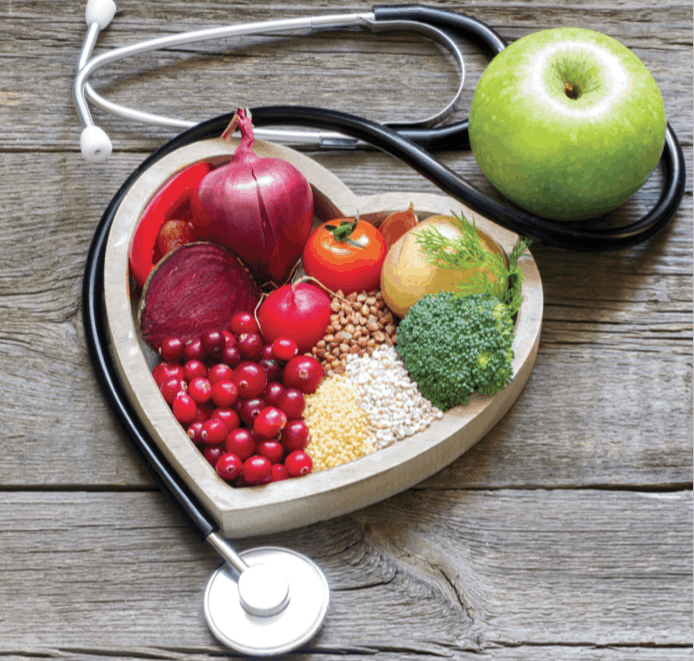South Africans are consuming too much of certain nutrients and not enough of others.
A study funded by the DST-NRF Centre of Excellence in Food Security examined the dietary intake of South Africans based on seven research studies conducted between 2000 and 2015. They sought to understand what we eat and if there are any deficiencies in our diets. These studies were restricted to the North West urban and rural areas; Cape Town urban areas; Free State urban and rural areas; Vaal region, and KwaZulu-Natal rural and urban areas.
THE BUILDING BLOCKS OF A HEALTHY DIET
Macronutrients
Macronutrients (fat, protein and carbohydrates) provide the body with energy. Some people are consuming too much of certain macronutrients while others aren’t eating adequate amounts.
The total energy intake of men and women in South Africa is shown to be consistently lower than the recommendation (except for KwaZulu-Natal and North West), which could indicate that a large percentage of men and women take in less than needed. Energy intakes ranged from 6 973 kJ to 15 485 kJ in men and 6 107 kJ to 12 302 kJ in women.
It was also found that the energy intake of rural South Africans was generally lower than that of their urban counterparts.
Urbanites consumed higher percentages of protein and fat than ruralists. However, the added sugar intake of ALL the participants seemed to be greater than the 25g or <10% of energy recommended by the World Health Organization.
The fibre intake was lower in both men and women and less than that of the RDA of 25g (for women) and 38g (for men), with the exception of the KwaZulu-Natal and the North West province, where the intake was above the recommended amounts.
Micronutrients
Micronutrients are elements such as vitamins and minerals that the body requires to stay healthy.
The total calcium and vitamin D intake of the male and female participants in the studies was far below the recommended amounts of 1000mg and 10μg respectively. Calcium intake for men ranged between 299mg and 743.2mg, and for women between 150.5mg and 636.4mg. Vitamin D intake ranged between 2.8μg and 7.7μg for men, and between 0,7μg and 9,0μg for women.
Not surprisingly, a lower intake of micronutrients was reported for rural South Africans. So, how is the food (or the lack thereof) on our plates contributing to the deficiencies in our diets?
What we are consuming and how it affects us
The most frequently consumed items included added sugar; tea; coffee; maize porridge; bread; full cream milk; eggs; margarine/oil; potatoes; fruit; vegetables; stock, and rice. Red meat is among the most expensive food items in South Africa, hence chicken appears to be the preferred source of protein for poorer communities.
Although full cream milk is popular, the low calcium intake reported likely implies that the portions consumed were smaller than the recommendations. This could have an impact on the high incidence of hypertension in South Africa.
Not enough veggies and fruits
The intake of fruits and vegetables is very low in South Africans. The recommended amount is at least 400g per day and it was found that all participants in the studies consumed less than 150g per day.
Too much starchy foods
The large consumption of staple foods (maize and bread) may be fuelled by the reduced prices linked to these foods since it is subsidised by government and no Value Added Tax is added. Hence, staple foods cost less per unit of energy than animal products, fruits, and vegetables, and are the preferred food choices by most people in poorer communities.
At home, sugar, fat or oil are often added during the preparation/cooking process to enhance the taste and flavour of staple foods.
This overconsumption of fortified staple foods, dietary fat, and added sugar (not fortified), are putting South Africans at risk of obesity and the development of non-communicable diseases, a health crisis that has been highlighted in the country.
Too much sodium
Based on various South African studies it is calculated that bread contributes between 5% and 35% of sodium intake, depending on the ethnic group being studied.
Salt is also added to food when cooking, when eating at the table, and during food processing – this could contribute on average to 40% of total sodium intake. This is a cause for concern since increased salt intake leads to an increase in blood pressure.
Beverages add to our sugar intake
Coffee and tea are popular amongst South Africans, with the average coffee and tea intakes being about tswo cups per day. Sugar is usually added to these beverages.
Sucrose-sweetened beverages also increase the intake of sugar. A study by Vorster et al (2014) has shown that the proportion of South African adults who consume sucrose-sweetened beverages has doubled over a five-year period.
Sucrose-sweetened beverages are often consumed simultaneously with food. This could be impacting on the absorption of some vitamins and minerals, particularly dietary iron. In fact, one study has shown that when a cup of filter or instant coffee is ingested with meals, iron absorption is reduced from 5.88% to 1.64% and 0.97%, respectively. When the strength of the instant coffee is doubled, the absorption level of iron falls even lower to 0.53%.
This article was originally published in the NRF Science Matters magazine. Access it, and other articles HERE
related Articles
New study assesses compliance with South Africa’s proposed R3337 regulations
Photo RF._.studio / Pexels. In light of the South African government’s publication of a draft regulation to introduce warning labels…
Five reasons to support draft Labelling Regulations R3337
The are numerous public health benefits of the draft Labelling Regulations R3337. Photo Nathália Rosa/Unsplash. South Africa’s Minister of Health…
Breede River Municipality hosts unique food security learning journey
“During two sunny winter days in early May, the Breede River Municipality (BVM) hosted a ‘learning journey’, an innovative…




